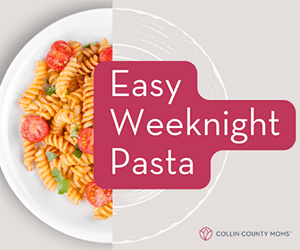This article is part of an editorial series, “Food Fights,” brought to you by Fort Worth Moms. Follow the “Food Fights” event page for special giveaways, social engagement, and published articles. Join our subscriber list so you don’t miss a moment of “Food Fights” and all Fort Worth Moms has to offer throughout the year.
As moms we deal with food fights all day long: Eat your veggies! No, you cannot have a snack before dinner! You must take one more bite before you can be finished. We say things like this multiple times a day, every day!
But what about if you are dealing with an aging family member (parent, grandparent, aunt, or uncle)? What do you say and look for when your food fights are with your elders, not your children?
As a speech-language pathologist most people think that I work with children and teach them how to say their sounds correctly. Some speech therapists do, but others work with adults on restoring language after a stroke, cognitive skills after a traumatic brain injury, and swallowing issues after any of the above. After 15 years in hospitals, rehabilitations, and long term care facilities, I have learned a few ways to make these “food fights” not so daunting for patients and their caregivers.
Sometimes patients will need a modified diet for a period of time due to their immediate diagnosis (for example, a person experienced a stroke that affected the muscles required for swallowing). Speech language pathologists are called in to access what diet/consistency is safe for the person. This can change from week-to-week depending on their progress. As the caregiver, don’t get discouraged if your loved one needs to have a modified diet for a time. Remember it is for safety (to protect the airway and avoid pneumonia) and it can always improve.
 What is a modified diet? Professionals use many different terms when it comes to a modified diet, but here is the gist and what you may see most often.
What is a modified diet? Professionals use many different terms when it comes to a modified diet, but here is the gist and what you may see most often.
-
- Thin liquids — This means no restrictions.
- Nectar-thick liquids — This is thicker than thin and will move slower in the patients’ mouth and throat making it safer for them to swallow. This thickness would be similar to pancake syrup. The best nectar tasting liquids are usually juices, tea, and lemon flavored water.
- Honey-thick liquids — Even thicker than nectar, this consistency would be similar to honey. It is hard to find a honey-thick liquid that actually tastes good. If you find your family member on this consistency, encourage juices and flavored waters. Another tip would be to take the liquids by spoon. This makes it feel more like pudding or a milkshake.
- Puree — This is the texture of baby food. Plain and simple. When a patient is put on a pureed diet, it is usually due to fatigue and being unable to chew safely. Another reason would be that the patient requires this level of thickness in order to swallow safely and avoid aspiration (food/liquid entering airway and causing pneumonia). The best tasting puree foods are usually fruits, corn, puddings, and anything that is naturally pureed (mashed potatoes, sweet potatoes).
 So where does the food fight happen when you have a loved one on a modified diet? Imagine yourself having to consume food in this new texture. We are taught our whole lives to enjoy food and to relish in the pleasure it brings us. Now that same food is being modified and the textures are all wonky. These are my tips for easing the food fights (because they will happen):
So where does the food fight happen when you have a loved one on a modified diet? Imagine yourself having to consume food in this new texture. We are taught our whole lives to enjoy food and to relish in the pleasure it brings us. Now that same food is being modified and the textures are all wonky. These are my tips for easing the food fights (because they will happen):
-
- A modified diet usually means they are also seeing a speech language pathologist who will provide swallowing exercises. Encourage these! Just like other muscles in your body, swallow muscles sometimes need therapy.
- Encourage the foods and liquids that you know actually taste good. No one wants to eat pureed turkey or drink honey-thick coffee. Try not to force foods that are less palatable. It is more about calories in than a well-rounded diet during this period.
- Be patient. Healing takes time, and this applies to swallowing as well. If your loved one sees you getting impatient or frustrated, he or she will follow suit. Instead, ask the therapists for advice, tips, tricks, etc. We are trained to help the patient AND the family member.
No one wants to be in the hospital with a loved one who has just suffered a stroke, brain injury, or anything else age-related. Top that with a modified diet that no one is used to and anxiety can spike through the roof. However, being equipped with some basic information can help ease the tension and help to avoid massive food fights.













